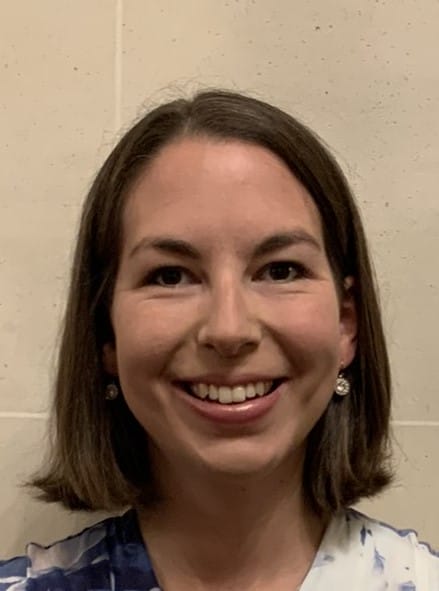Ask an expert:
My name is Louise Mundy.
I graduated in 2013 and moved to West Yorkshire. I rotated around the trusts in the region and had worked at every single one by CCT in January 2024!
I am now a consultant in AIM at Harrogate and District Foundation Trust.

What got you interested in palliative care?
During my time as a core medical trainee I realised that the aspects of the jobs I was enjoying most were the on call shifts, clerking patients and working out a plan (AIM) and looking after patients at the end of life (palliative care).
I was working in haematology at the time and I will never forget one particular patient and his wife, who I had come to know well as he was often on the ward. I was able to open up a conversation about the future with them and the patient told me that he didn’t want to keep being admitted and he felt ready to die. He wanted to focus on comfort and being at home. As a result, we completely changed the focus of his care going forwards. Seeing the difference that opportunistic conversation made inspired me to think about incorporating palliative care into my future career.
How did you train in palliative care?
During the first couple of years of my AIM specialty training I spent a lot of time making connections with local palliative care teams. I attended the palliative care registrars’ weekly teaching as my specialty session.
I took 6 months out of programme (OOPE) halfway through ST5, working as a specialty doctor at a local hospice. I improved my understanding of how medications are used in the palliative setting, honed my communication skills and had the privilege of being part of providing truly holistic care.
Returning to training, I spent one session a week with the hospital palliative care team. This gave me a different perspective and I saw a different patient population to those in the hospice.
In my final year of training I had the opportunity to spend time with the community palliative care team here in Harrogate, which was the piece that had been missing for me thus far. Seeing patients in their homes highlighted the challenges faced when providing end of life care in the community. I gained a better understanding of how other community teams, such as district nurses, are involved in the care of these patients.
I also completed a postgraduate certificate in palliative care via Newcastle University.
Were there any challenges?
Organising the OOPE was challenging. Hospice specialty doctor jobs are usually advertised at short notice, so I wasn’t able to give the usual 6 months’ notice to the deanery. I had to work with my TPD and head of school and get their agreement that I would be able to take OOPE with a shorter than usual notice period. This meant that I wasn’t able to get it approved for training by the GMC, meaning it postponed my CCT date (not an issue for me, but something to bear in mind).
My OOPE was from February to August 2020- a challenging period for everyone I think! The restrictions in place at the time meant the hospice was a very different environment to usual and I didn’t get the opportunity to do any community work as this was reduced to a minimal service.
How does/will this fit into your consultant working?
I currently spend one day per fortnight (1PA per week) working with the community palliative care team here in Harrogate. It’s really refreshing to be able to go and see people in the community; a complete change from my day to day on AMU and SDEC. Sometimes I’ve even seen the same patient in both settings. I’m able to bring my medical expertise to the community team, who are mainly specialist nurses, although of course they have palliative care specialty doctors and consultants too. I might visit patients along with the CNS who knows them, if they want a more medically focused review. Mostly, I go and see patients by myself. Driving around beautiful Yorkshire on a sunny day as part of my work is wonderful!
My palliative care skills are also valuable day to day in my acute medicine work. I provide advice on symptom management to my colleagues and am often asked to see patients on AMU with palliative care needs. The palliative care team are vitally important for the ongoing care and support of these patients, however if I can make some initial changes to management, they can follow up later.
Do you have any tips for trainees who may be interested in palliative care as a specialist skill?
Get to know your local palliative care team and the palliative care registrars in your area. They are likely to know of opportunities that might be coming up in the region and have contacts they can put you in touch with.
You’re likely to encounter people who don’t understand how palliative care fits with acute medicine. Don’t let them put you off! A huge proportion of the patients we see acutely are in their last year of life and recognising and addressing this can make a huge difference to them and their families, as well as bring you great job satisfaction.
